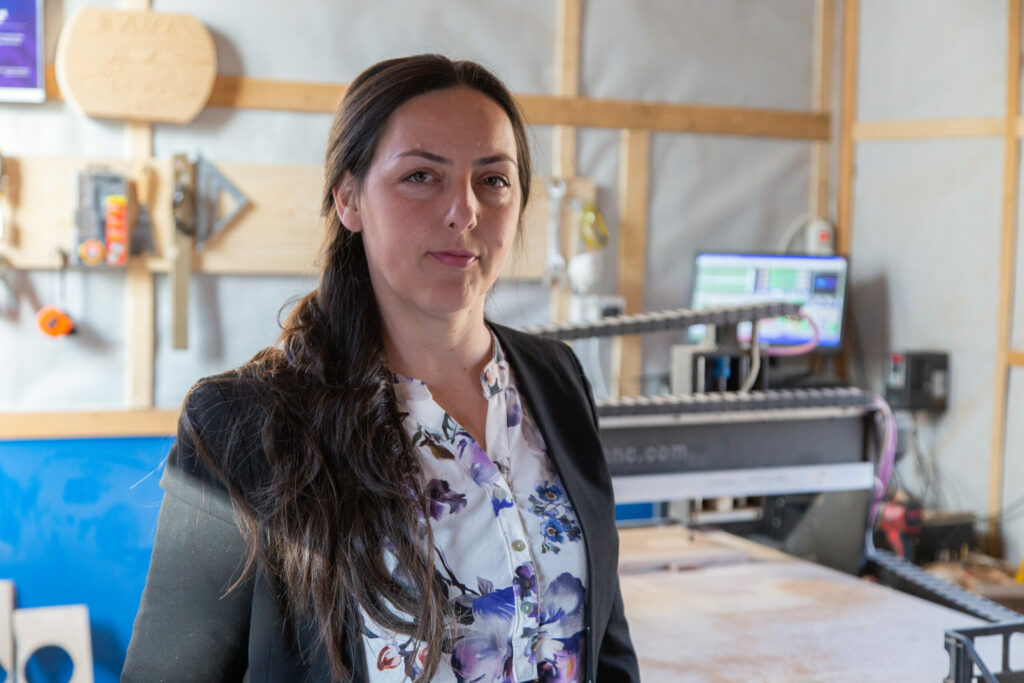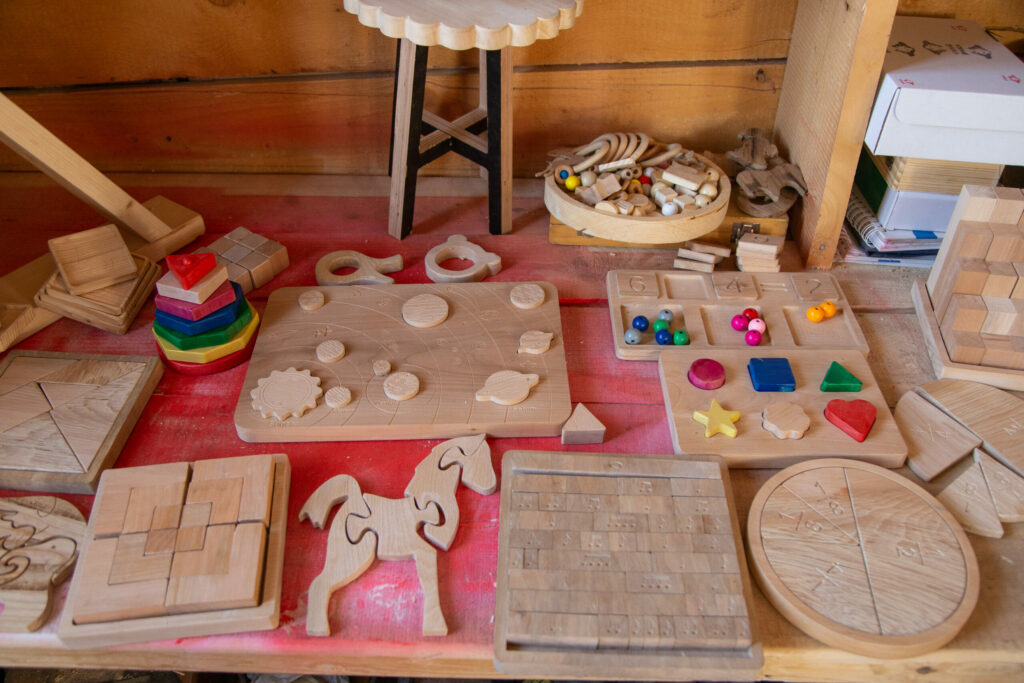Ten years ago, Jasna Radenović from Plav wished her children to have toys made of natural materials. At the time, the offer in Montenegrin stores was not rich, so Jasna came up with the idea to make toys herself.
“Wood was a material available to me. At the beginning, I made stacking toys, and then I adjusted the shapes to the age and needs of my children,” Jasna recollects.
Two years ago, she applied for the National Employment Agency’s scheme to start a business financed by the European Union and the Government of Montenegro. Thanks to their financial support, she started the company named “Three Wolves.”
“Today, I make eco-friendly toys from wood and fabric for children of all ages. We make toys that facilitate learning mathematics, first letters, musical notes, or geography. Our toys positively influence the development of motor skills and stimulate children’s imagination”, Jasna says.
In addition to grant provided by the Employment Agency, which she used to procure machines and materials necessary to produce toys, this entrepreneur also received mentoring support to improve strategic planning and marketing skills. UNDP Country office has provided mentoring support to the beneficiaries of the self-employment program, through the regional project titled “Promoting Inclusive Labour Market Solutions in the Western Balkans,” funded by the Austrian Development Agency.
UNDP Montenegro has provided mentoring support to more than 200 unemployed who started their own micro businesses and contributed to the activation, employment and local economies and communities’ development, all during the pandemics – biggest health and economic crisis.
“As I had no previous experience in business, I did not know which products to focus on and how to present myself to the market, but I had great support from mentors,” Jasna says.
Her mentor Ivan Mališić believes that mentoring support is of essential value for beginners in business because it reduces the time entrepreneurs spend searching for useful information. “Ideal situation is one where synergy is created between a mentor who has some experience and mentees to facilitate improvement, survival, and further development of the business,” he noted.
Thanks to the encouragement of her mentor, Jasna applied for the Investment and Development Fund competition for women in business and won first place and seven thousand euros grant for the best project. “The mentor’s help in writing a business plan meant a lot to me. He convinced me to apply because he was sure that the idea stood out and that there was a lot of potential in it”, Jasna says.
Ivan adds that, in his opinion, this is a perfect business activity. “The business idea is good, without any doubt. It is all about a young entrepreneur, a young family, which is ideal for this kind of support and business activity.”
Although Jasna would like her products to become a trademark brand of Montenegro, she is aware of the challenges that women entrepreneurs face in Montenegro.
“The most difficult thing is to reconcile personal and business obligations. There is a need to organize time with three boys of different ages, have time for their school and extracurricular activities, and develop the business in parallel to that”, Jasna says.
The fact that women spend on average 10 years of their lifetime on unpaid work and household care shows how important it is to support women in business. This has become even more evident during the COVID-19 pandemic, when women’s unpaid work and household care exceeded male labor by 92%. While 11% of women said they do not usually do any housework, the proportion of men who reported the same is 42%, a UNDP survey results have shown.
She also believes that prejudices about women entrepreneurs discourage those who start their own businesses.
“Whenever people hear that the director is a woman, there is a lingering question – is she up to the challenge? Nevertheless, I was committed to succeeding and overcoming such prejudices. I did not encounter any significant barriers in the system. Quite the contrary, everyone was supportive and helpful”.
She encourages all unemployed women to believe in themselves and to apply for programs that support women’s entrepreneurship.
Even though they make up the majority of Montenegro’s population, women are not visible enough in economic life. Women make up 60% of all unemployed in Montenegro. Only one quarter of companies are owned by women, while women make 32% among entrepreneurs. Only 8% of land in Montenegro is owned by women. Without economic empowerment of women as a precondition for achieving equality in all areas, there will be no resilient and prosperous society, based on equal opportunities. Creating conditions for women to fulfil their potential and contribute must be one of the most important development tasks of the state, but also of every citizen.
“If you do not try, you will never know how much you can achieve, and I am convinced you will get help and support from the system as I did,” Jasna says.
Article, photo and video source: undp.org




